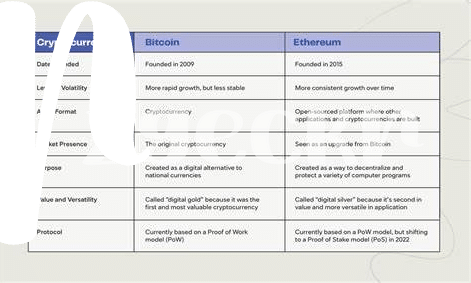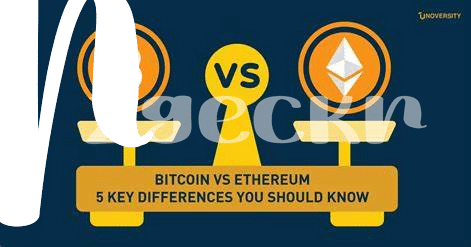🪙 Ethereum 101: the Basics of Digital Giving

Imagine a world where every cent you donate reaches its intended cause without any detours, and you could track its journey. This is where Ethereum steps in, a digital platform not too different from the internet you surf daily, but with a twist—it handles digital money, or “cryptocurrency,” and agreements, called “smart contracts.” Think of Ethereum like a giant, transparent ledger, but instead of recording debits and credits, it records promises and actions. When you donate Ethereum to a charity, that promise (your donation) is turned into a “smart contract.” This contract is like a digital handshake – unbreakable and transparent. It ensures that your donation is only used for the cause you intended. No more wondering if your money reached the victims of a natural disaster or funded a child’s education; you can see it happening in real-time. This digital form of giving is not just revolutionary in ensuring transparency, but it’s also incredibly efficient, cutting down the long chain of intermediaries typically involved in philanthropy.
| Term | Explanation |
|---|---|
| Ethereum | A digital platform that supports cryptocurrency and smart contracts. |
| Cryptocurrency | Digital or virtual currency secured by cryptography, used as a medium of exchange. |
| Smart Contracts | Digital contracts stored on a blockchain that automatically execute when predetermined conditions are met. |
| Transparent Ledger | A visible, unchangeable record of transactions. |
By utilizing this technology, the act of giving becomes not only more transparent but also more direct and impactful, transforming the landscape of philanthropy as we know it.
🌍 a New Era: Transparent & Efficient Philanthropy
Imagine a world where every penny you donate makes a direct impact, unhindered by lengthy processes or excessive fees. That’s the promise of using Ethereum in philanthropy. This technology not only ensures that your contributions reach their intended destinations without a hitch but also brings unprecedented transparency to the entire process. Donors can track, in real-time, how their funds are being utilized, fostering a newfound trust in charitable organizations. Furthermore, with the adoption of smart contracts, the execution of philanthropic agreements becomes automated, ensuring that donations are used exactly as intended. This innovation not only simplifies the donation process but also opens up avenues for more effective and efficient humanitarian aid. Given these advancements, the landscape of giving is poised for significant transformation, one where generosity and impact go hand in hand like never before.
🤝 Smart Contracts: Automating Trust in Donations

Imagine a world where donating to a good cause is as easy and transparent as sending an email. With the magic of what we call smart contracts, this isn’t just a dream—it’s becoming reality. These smart contracts are like invisible helpers living within the Ethereum network. They operate under simple rules: if you give, then your donation directly reaches its intended destination without any detours. This cuts down on the confusion and sometimes mistrust that can come with traditional charity, making every penny count exactly where it’s meant to.
Now, think of it as a promise sealed in digital code: your contribution will only go to the cause you support once certain conditions are met, like reaching a campaign goal. This means you’re not just giving; you’re part of a trust chain that ensures your generosity has a real, timely impact. Every contribution can be tracked with lightning speed, creating a circle of trust. This transparency is revolutionary, bridging gaps between donors and beneficiaries and fostering a new level of confidence in philanthropy. With Ethereum, the future of giving is bright, secure, and, most importantly, genuine.
💡 Case Studies: Real Impact through Ethereum Donations

Imagine a world where every penny you donate not only reaches its intended cause but also creates a wave of change in the most direct and impactful way possible. This isn’t a distant dream but a reality shaped by Ethereum-based donations. Through vivid examples, we’ve seen how smart contracts can revolutionize philanthropy, making it more transparent and efficient. For instance, a project aimed at providing clean water to remote villages has drastically reduced administrative costs and ensured that funds are released only when certain milestones are achieved. Similarly, disaster relief efforts following natural calamities have benefited from immediate fund disbursement, directly assisting those in need without the usual delays of traditional banking systems. These real-life scenarios underscore the transformative power of Ethereum in the philanthropic world. For more insights into the broader impacts of digital currencies, consider exploring bitcoin’s contribution to financial inclusion worldwide versus ethereum. Such initiatives highlight not only the potential for Ethereum to change how we give but also pave the way for a future where philanthropy is more accessible, efficient, and transparent.
🚀 Overcoming Challenges: Privacy, Security, and Adoption
As we journey through the innovative landscape of Ethereum donations, we encounter hurdles that need smart solutions. One of the first stumbling blocks is privacy. People want to help others without broadcasting their generosity to the world, which requires a delicate balance between transparency and personal privacy. Security is another big concern. Just like a treasure chest, our digital donations need strong locks to keep them safe from pirates. Hackers are always on the lookout for vulnerabilities, making robust security measures non-negotiable. Lastly, the widespread acceptance of Ethereum as a tool for philanthropy faces challenges. Not everyone is ready to jump on the digital bandwagon, either due to lack of understanding or trust in this new method of giving.
| Challenge | Solution |
|---|---|
| Privacy | Implementing measures that allow donors to remain anonymous while ensuring transparency about where and how funds are used. |
| Security | Adopting advanced encryption techniques and regular security audits to safeguard donations. |
| Adoption | Education and easy-to-use platforms to bridge the gap between traditional philanthropy and its digital future. |
Navigating these challenges requires a blend of technology, education, and community effort. By addressing privacy concerns, fortifying security, and simplifying the adoption process, the path to a future where giving through Ethereum becomes second nature is clearly on the horizon. With continuous improvement and a user-centric approach, the potential for Ethereum to revolutionize philanthropy is immense, opening doors to a world where generosity knows no bounds, and where every donation is a step towards a brighter future.
🌟 the Future of Giving: Predictions and Possibilities

Imagine a world where your desire to help can be converted into real action in no time, thanks to the magic of Ethereum. Picture this: in the near future, your donations could travel across the globe instantaneously, landing exactly where they’re needed most, without getting lost in a maze of administrative costs. This isn’t just a dream. As we dive deeper into understanding the transformative power of Ethereum in philanthropy, we see a horizon lit by smart contracts that ensure every penny is accounted for, magnifying the impact of your generosity. Moreover, efforts to improve privacy and security are on the rise, making digital giving safer and more appealing. For those curious about how Ethereum compares to Bitcoin in navigating the choppy waters of internet privacy and global regulations, understanding the nuances between them is key to appreciating Ethereum’s potential in revamping humanitarian aid. By overcoming hurdles like adoption, which requires us all to embrace this shift, the future of giving is poised to become more inclusive, efficient, and transparent, harnessing the unstoppable force of blockchain technology for the greater good.
